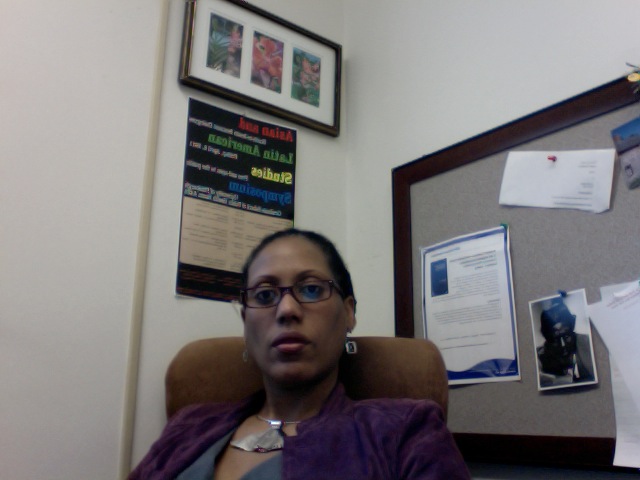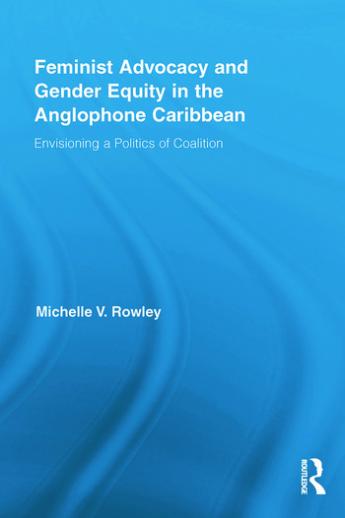Michelle V. Rowley

Associate Professor, The Harriet Tubman Department of Women, Gender, and Sexuality Studies
American Studies
Affiliate Faculty, Latin American and Caribbean Studies Center
3121 Susquehanna Hall
Get Directions
Research Expertise
African American/African Diaspora
Africology, Afrocentricity, and Pan-Africanism in LIS
Black Feminist Thought
Black Studies
Caribbean
Citizenship
Diaspora
Gender And Development
Interdisciplinarity
Intersectionality
pedagogy
Sexuality
Transnational Feminisms
Michelle V. Rowley is an Associate Professor in the Women’s Studies Department at the University of Maryland. Ph.D. Clark University (2003), M.Sc. Development Studies, Consortium Graduate School, University of the West Indies, Mona, Jamaica (1996), B.A. University of the West Indies, St. Augustine (1992)
Dr. Michelle Rowley is an Associate Professor to the Women’s Studies Department at the University of Maryland. Before joining the department in 2006 she served in the Women’s Studies Department at the University of Cincinnati (2004-2006). She has also held a visiting appointment as a Benedict Distinguished Visiting Professor in the Women’s and Gender Studies Program, Carleton College. Her book is entitled Feminist Advocacy and Gender Equity in the Anglophone Caribbean: Envisioning a Politics of Coalition (Routledge, 2011).
Her publications address issues of gender and development, the politics of welfare, as well as state responses to questions of Caribbean women’s reproductive health and well-being and rights for sexual minorities. Her publications include “When the Post-Colonial State Bureaucratizes Gender: Charting Trinidadian Women’s Centrality Within The Margins,” “Where the Streets Have No Name: Getting Development Out of the (RED).” “Rethinking Interdisciplinarity: Meditations on the Sacred Possibilities of an Erotic Feminist Pedagogy,” and “Whose Time Is It?: Gender and Humanism in Contemporary Caribbean Feminist Advocacy.” Her research interests encompass issues of gender and development, transnational feminisms, the politics of welfare, Caribbean women’s reproductive health and well-being, and rights for sexual minorities. She is presently completing a manuscript that examines queer representations of "home" in the English-speaking Caribbean.
Publications
Anything But Reactionary: Exploring the Mechanics of Backlash
Michelle V. Rowley publishes article in Signs: Journal of Women in Culture and Society
Author/Lead: Michelle V. RowleyFeminist conceptualizations of backlash have understandably and appropriately centered on women’s experiences, drawing attention to efforts that would, as Susan Faludi noted in 1991, “retract the handful of small and hard-won victories that the feminist movement did manage to win for women.” In this essay, I reengage the concept to ask what we might learn if our point of departure was informed by the experience of blackness. I suggest that rather than positioning backlash as a reactionary response to any perceived gains, centering race allows us to theorize backlash as a condition of modernity. Instead of conceptualizing backlash as a punitive but potentially rectifiable kink, I suggest that backlash-as-condition is an inherent systemic feature that compels us to reimagine the very system that is itself dependent on backlash for its survival and proper functioning.
Feminist Advocacy and Gender Equity in the Anglophone Caribbean: Envisioning a Politics of Coalition
Michelle V. Rowley's book uses the Anglophone Caribbean as its site of critique to examines such issues as reproductive rights and equity, sexual harassment, and sexual minorities' rights
Author/Lead: Michelle V. Rowley
This book uses the Anglophone Caribbean as its site of critique to explore two important questions within development studies. First, to what extent has the United Nations' call to implement gender-mainstreaming projects resulted in the realization of gender equity for women within developing societies? Second, does gender-mainstreaming have the conceptual, operational, and technical capacities to address the centrality of the body in 21st-century lobbies for gender equity? In answering these questions, Rowley examines such issues as reproductive rights and equity, sexual harassment, and sexual minorities' rights.

